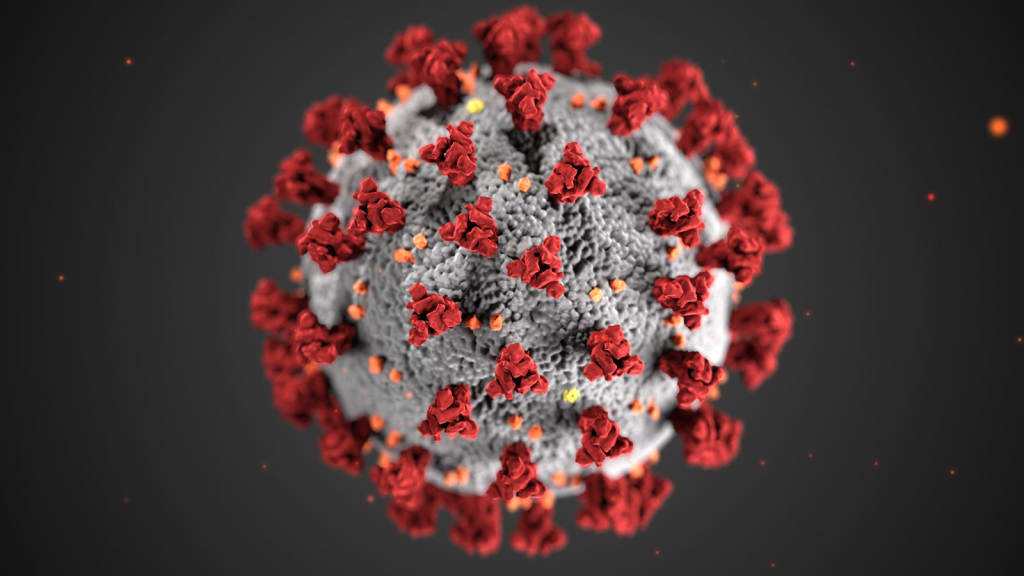
This pandemic has changed the way we live and work, as various health and safety restrictions keep more of us at home more often. The resulting changes to our behaviour are already impacting the environment around us. Air pollution is diminishing, water quality is improving, and snow is becoming more reflective in some areas since the pandemic began.
After industrial activities in India slowed or ground to a halt because of lockdowns, data showed that air pollution levels had dropped significantly. One study found that the concentration of an air pollutant called particulate matter (PM) 10 decreased around a third to a fourth of the pre-pandemic level in that country.
Research also showed that the pollutant nitric dioxide levels lowered drastically by 20–40% across the U.S., Western Europe, and China.
An analysis of a data Trusted Source from 44 Chinese cities also found that pandemic travel restrictions resulted in reductions of between 4.58% and 24.67% in five major air pollutants. Greenhouse gas emissions display some of the most dramatic environmental shifts of the pandemic. China saw a 40 percent reduction in NO2 levels, the equivalent to removing 192,000 vehicles from the roads. Later in the year, major U.S. cities saw a 30 percent drop, and emissions in some U.K. cities fell as much as 60 percent.
It suggests that the unprecedented decrease in air pollutant emissions during the pandemic could reduce seasonal ozone concentrations.
They estimate that global and European emissions may fall by 30–50% for the industry, energy, international shipping, road transport sectors, and 80% for the aviation sector.
Let’s use this unprecedented time to closely examine the impact of human activity on the natural world. It may give us the kick in the ass we need to be more thoughtful of how we interact with nature, which could have long-lasting, permanent repercussions for humans and the environment alike. We have an opportunity here to give us and Mother Nature the hope of a better future.
Ned Bair has been studying snow in the Indus River Basin, an area of mountains and rivers in Asia that supplies water for more than 300 million people.
Cleaner snow has a higher albedo, which means it reflects more light energy and, thus, melts at a slower rate.
Bair and his team found that snow albedo was higher during pandemic-related lockdowns than in the 20 years prior -- likely a result of the significant reduction in travel and industrial activity as fewer people were leaving home and workplaces were shut down or reduced operations.
Nima Pahlevan, a research scientist at NASA's Goddard Space Flight Center, dove into examining the pandemic's impact on water quality worldwide.
"The water has become clearer in the western Manhattan area because fewer people were commuting to Manhattan during the lockdown," he explained.
When the city imposed a stay-at-home order, many of Manhattan's 2.1 million commuters began working from home or left the city. Fewer people producing those pollutants means that fewer particles end up in the water in the Hudson River. Satellite data showed a more than 40% drop in turbidity during the pandemic in a section of the Hudson River.
Many studies worldwide have reported that the pandemic has brought about significant reductions in climate and water pollution.
A study found that pollution levels dropped by nearly 16% in India’s longest freshwater lake during a lockdown period. Another study, Trusted Source, found that pandemic-related beach closures and travel restrictions reduced the amount of trash leaking into the marine environment off the coast of Kenya.
With fewer boats in the water, and a reduction in air pollution, urban areas are seeing a sharp increase in water quality, as is the case in Venice’s canal water.
The effects of the pandemic on the environment are not all good and give us pause to see where some of our biggest problems as humans exist.
Two of the biggest problems I see are selfish ignorance and fear.
The selfish ignorance of the “Me attitude,” as in, screw everybody else I just care about me.
Or the Fear attitude of not wanting to use mass transit, which is more understandable
Plastic waste has increased dramatically during the pandemic, and a large amount of it will likely end up in landfills and oceans. Hong Kong’s beaches, for example, have seen a disheartening amount of face masks washing up onshore.

Plastics' demand for use in the production of disposable medical masks, gloves, and other personal protective equipment has increased exponentially during the pandemic, which is understandable. But what is not understandable is why so many people are so ignorant or so lazy that they dispose of these items by throwing them in a river, or out their car window or just dropping them where they stand. A few days ago, while waiting in line at my local market, I watched as several people left the market, walked to their car and threw their masks on the ground before driving away. Two things, there is a large garbage bucket right outside the door of the market, and why not just dispose of your PPE at home? Simple things can make a big difference. Why can't we just do the right thing?
As businesses start to open back up and more employees begin commuting again, we see fewer and fewer commuters using public transit in efforts to reduce their chances of being infected. This is good for reducing the spread of the virus but is leading to an increase in single-driver vehicles on the road, which is very bad for the environment on a global scale.
The pandemic has revealed nature’s remarkable resiliency as well as the burden of environmental change on industry.
For all its downsides, the pandemic has demonstrated that an eco-friendly future is possible.
So what can we do to make a difference, you ask. We can do what this Pandemic has taught us and what a lot of us are already doing.
#1- Don’t litter! Grow up, be an adult and dispose of your garbage responsibly. It's an effortless thing to do that can make a huge difference. Trust me when I tell you that if you are a constant litterer, it may well be your least attractive feature.
#2- Reduce your use of plastics in any way you can. Never buy those over-packaged items. You know the ones, I mean; the ones packed inside another package, which is inside another package, and so on.
#3- Try only to buy locally sourced items or even try building or growing something yourself. Even with a small garden or planter box, you can make a big difference in your carbon footprint. My wife and I live in the city, but we grow our own Tomatoes and cucumbers every year. We also grow raspberries and blueberries, which are delicious.
#4- If possible, try to work from home at least a couple of days a week. The Pandemic has taught us that this is an achievable goal. If you work five days a week, this will reduce your workweek carbon footprint by at least forty percent.
#5- Don't waste water but try to conserve it. You don't have to water your lawn every day, so turn off those automatic sprinklers. Help nature do its job by using rainwater whenever you can. We use rain barrels to collect water and then use that water for gardening.
#6- This one is the most important of all. The number one thing not to waste is time. Start doing all you can now, not at some uncertain time in the future.
This Pandemic has shown us what we can do to realize a cleaner environment for our children and us. So let's stop wasting time and do our part to clean up the mess we've made.
Mother Nature is infected with a virus and needs a vaccine.
We have been that Virus for a very long time, but now it's time for us to switch our roll and become the vaccine.

About the Creator
Gerald Holmes
Born on the east coast of Canada. Travelled the world for my job and discovered that kindness is the most attractive feature in any human.
R.I.P. Tom Brad. Please click here to be moved by his stories.






Comments
There are no comments for this story
Be the first to respond and start the conversation.